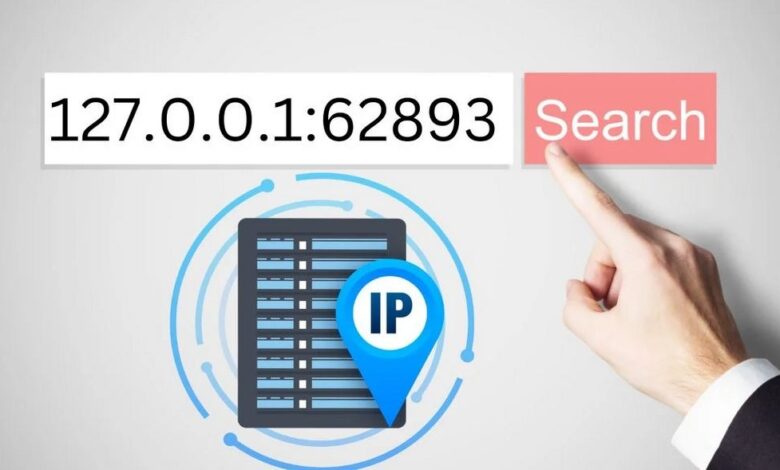What is 127.0.0.1:62893?: Everything You Need to Know

If you’ve ever stumbled upon the term “127.0.0.1:62893,” you might be scratching your head wondering what it means. Don’t worry – you’re not alone. While it sounds like a string of random numbers, it’s actually a key part of how computers communicate.
In this blog, we’ll dive deep into 127.0.0.1:62893, break it down in simple terms, and explain why it matters. By the end, you’ll have a solid understanding of this technical-sounding phrase and its importance in the digital world.
What Does 127.0.0.1:62893 Mean?
Let’s start by dissecting the term. “127.0.0.1” is an IP address, and it’s commonly known as the “loopback” address. This is a fancy way of saying it’s your computer talking to itself. Meanwhile, “62893” is a port number, a virtual “door” your computer uses to send and receive data for specific programs or services. Together, “127.0.0.1:62893” represents a local connection on your computer through a specific port.
In short, 127.0.0.1:62893 is like a private conversation your computer is having with itself for a particular purpose. It’s both fascinating and essential for many behind-the-scenes operations.
Why Is 127.0.0.1:62893 Important?
You might wonder, why should I care about 127.0.0.1:62893? It’s important because it plays a vital role in:
- Testing Applications: Developers use 127.0.0.1 and specific port numbers like 62893 to test their software locally before deploying it.
- Debugging Issues: When troubleshooting, the loopback address can help identify and isolate issues without external interference.
- Security and Privacy: By using 127.0.0.1:62893, data stays within your device, reducing the risk of external cyber threats.
Understanding this concept gives you insight into how your computer manages connections and keeps things running smoothly.
How Does 127.0.0.1:62893 Work?
Picture your computer as a busy office. The IP address 127.0.0.1 is the receptionist who handles internal calls. If a program wants to communicate with another program on the same machine, it uses this loopback address. The port number, like 62893, acts as an extension number directing the call to the right department (or application).
Here’s an example:
- A developer writes a program to serve a webpage locally for testing.
- The program runs a server on 127.0.0.1:62893.
- The developer opens their browser and types “127.0.0.1:62893” to view the webpage.
The loopback address ensures the request doesn’t leave the computer, making it fast and secure.
Common Uses of 127.0.0.1:62893
Now that you understand the basics, let’s look at some practical scenarios where 127.0.0.1:62893 comes into play:
1. Local Development and Testing
Web developers and software engineers often use 127.0.0.1:62893 to run and test applications locally. It’s a safe environment that mimics real-world conditions without affecting live systems.
2. Debugging Network Issues
IT professionals use the loopback address to troubleshoot and diagnose network problems. By checking connections through specific ports like 62893, they can pinpoint issues without involving external networks.
3. Gaming Servers
Gamers hosting local multiplayer sessions might use 127.0.0.1 with unique port numbers to set up private servers. It ensures low latency and a secure environment for friends to play together.
4. Custom Applications
Many custom or experimental programs use 127.0.0.1:62893 for communication during development or testing phases. It’s an easy way to ensure data remains confined to the local machine.
Troubleshooting 127.0.0.1:62893 Issues
Despite its simplicity, you might encounter problems with 127.0.0.1:62893.
Problem 1: “Connection Refused” Error
This usually happens when the program associated with port 62893 isn’t running. Ensure the application or service is active before trying again.
Problem 2: Port Already in Use
Sometimes, another program might be using port 62893. You can:
- Change the port number in your application.
- Close the conflicting program using a task manager or terminal command.
Problem 3: Firewall Blocking the Connection
Firewalls might block local connections. Check your firewall settings and add an exception for 127.0.0.1:62893 if needed.
Fun Facts About 127.0.0.1
- It’s nicknamed “localhost,” a term you’ll often see in tech discussions.
- No matter what you do, 127.0.0.1 will always point back to your computer.
- It’s part of a reserved IP range that can’t be assigned to any external device.
How to Use 127.0.0.1:62893 in Your Projects
If you’re new to programming or just curious, here’s a quick guide to using 127.0.0.1:62893:
- Choose a programming language like Python.
- Use a simple script to create a local server. For example:
from http.server import HTTPServer, SimpleHTTPRequestHandler
PORT = 62893
server_address = ('127.0.0.1', PORT)
httpd = HTTPServer(server_address, SimpleHTTPRequestHandler)
print(f"Serving on 127.0.0.1:{PORT}")
httpd.serve_forever()- Run the script and open your browser to visit 127.0.0.1:62893.
You’ve just created a local server!
Why You Should Understand 127.0.0.1:62893
Whether you’re a developer, gamer, or just a curious tech enthusiast, understanding 127.0.0.1:62893 helps demystify how computers talk to themselves. It’s not just jargon – it’s a foundational concept that powers many of the digital tools and services we use daily.
Conclusion
127.0.0.1:62893 might look like a complex code, but it’s really just a simple way for your computer to talk to itself through a specific port. From local development to debugging and gaming, it’s a versatile and crucial tool in the tech world. Next time you see this address, you’ll know exactly what it means and why it matters.
So, go ahead and explore the possibilities with 127.0.0.1: 62893 – you might just uncover new ways to leverage it in your own projects!



